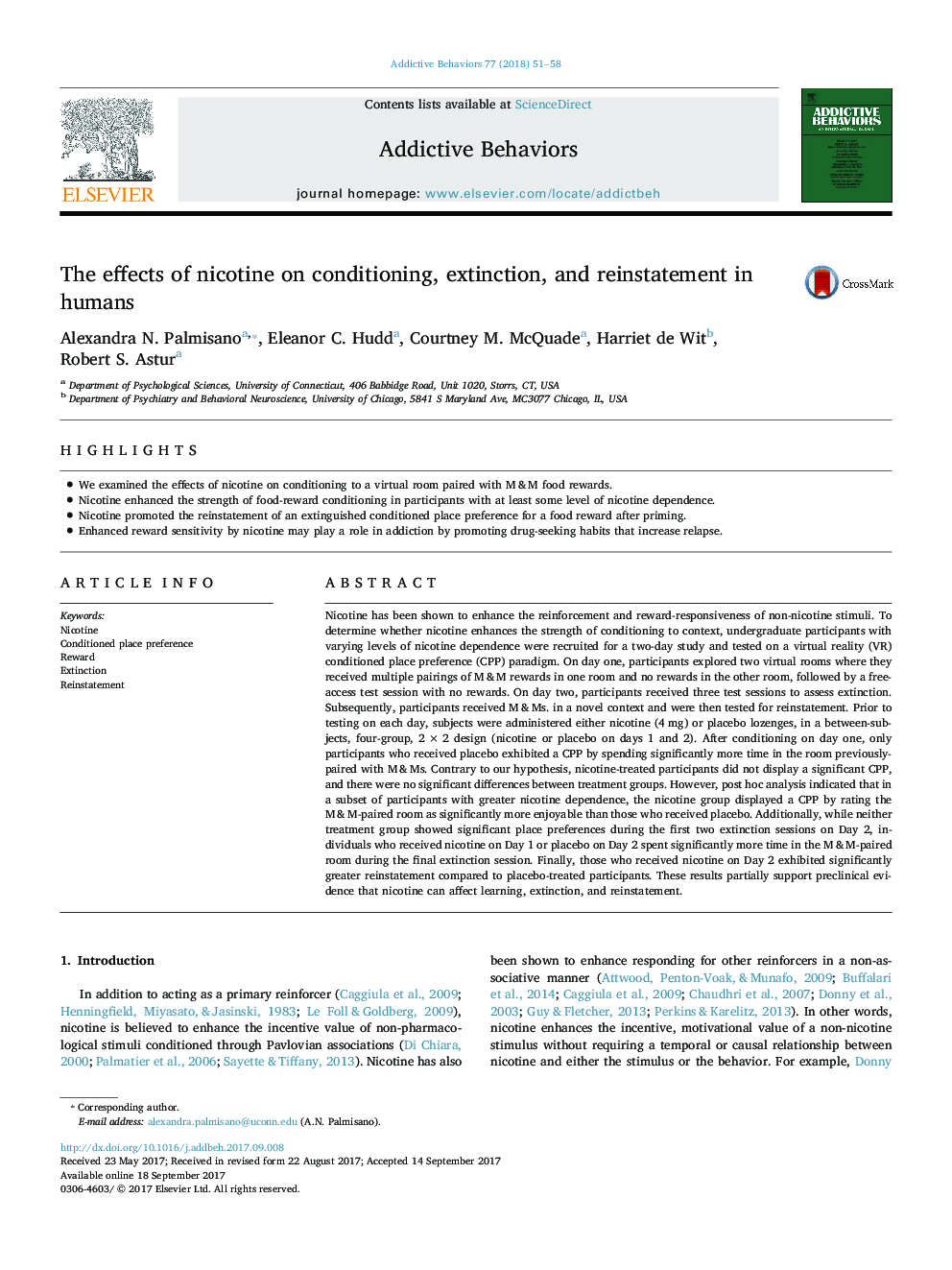| کد مقاله | کد نشریه | سال انتشار | مقاله انگلیسی | نسخه تمام متن |
|---|---|---|---|---|
| 5037530 | 1472494 | 2018 | 8 صفحه PDF | دانلود رایگان |
- We examined the effects of nicotine on conditioning to a virtual room paired with M&M food rewards.
- Nicotine enhanced the strength of food-reward conditioning in participants with at least some level of nicotine dependence.
- Nicotine promoted the reinstatement of an extinguished conditioned place preference for a food reward after priming.
- Enhanced reward sensitivity by nicotine may play a role in addiction by promoting drug-seeking habits that increase relapse.
Nicotine has been shown to enhance the reinforcement and reward-responsiveness of non-nicotine stimuli. To determine whether nicotine enhances the strength of conditioning to context, undergraduate participants with varying levels of nicotine dependence were recruited for a two-day study and tested on a virtual reality (VR) conditioned place preference (CPP) paradigm. On day one, participants explored two virtual rooms where they received multiple pairings of M&M rewards in one room and no rewards in the other room, followed by a free-access test session with no rewards. On day two, participants received three test sessions to assess extinction. Subsequently, participants received M&Ms. in a novel context and were then tested for reinstatement. Prior to testing on each day, subjects were administered either nicotine (4Â mg) or placebo lozenges, in a between-subjects, four-group, 2Â ÃÂ 2 design (nicotine or placebo on days 1 and 2). After conditioning on day one, only participants who received placebo exhibited a CPP by spending significantly more time in the room previously-paired with M&Ms. Contrary to our hypothesis, nicotine-treated participants did not display a significant CPP, and there were no significant differences between treatment groups. However, post hoc analysis indicated that in a subset of participants with greater nicotine dependence, the nicotine group displayed a CPP by rating the M&M-paired room as significantly more enjoyable than those who received placebo. Additionally, while neither treatment group showed significant place preferences during the first two extinction sessions on Day 2, individuals who received nicotine on Day 1 or placebo on Day 2 spent significantly more time in the M&M-paired room during the final extinction session. Finally, those who received nicotine on Day 2 exhibited significantly greater reinstatement compared to placebo-treated participants. These results partially support preclinical evidence that nicotine can affect learning, extinction, and reinstatement.
Journal: Addictive Behaviors - Volume 77, February 2018, Pages 51-58
